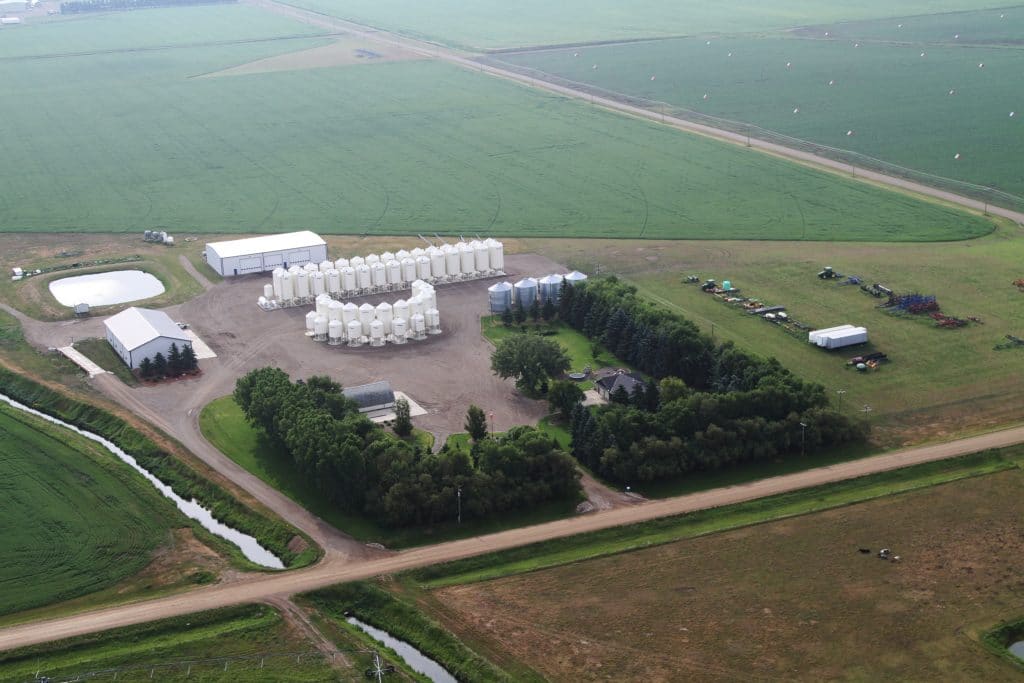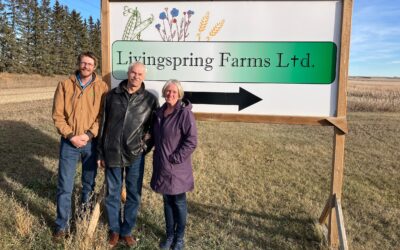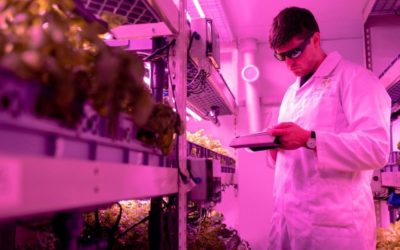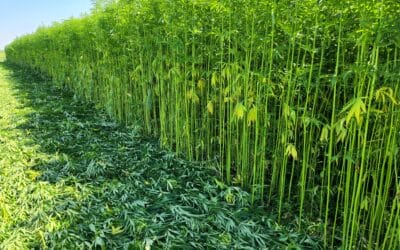Witdouck Farms has taken every opportunity to expand and diversify over the past four decades.
When brothers Dale, Brian and Calvin Witdouck took over the family farm from their father, Ralph, they were young and ambitious. They had been working on the grain farm their whole lives and now as they took over from their father in the 1980s, they knew they wanted to expand the farm.
“We just kind of had grown steady throughout the ‘80s, and then into today, we’re still expanding. And then now the last five years or so the next generations all been coming in,” Dale says in a phone interview.
At the start, the brothers would work off-farm in the winter at the local feedlots to help supplement the farm income. The farm is located near Iron Springs, Alta., in the heart of feedlot alley.
As the brothers looked for opportunities to expand and diversify, seed growing caught their attention. Calvin had been visiting a neighbour’s farm who grew alfalfa seed and had leaf cutter bees. Around the same time, Dale was at a curling bonspiel when a local seed grower mentioned the area needed more seed production. In 1988, Witdouck Farms planted its first pedigreed alfalfa seed crop.
“We were always very diligent and keep things clean and all that. So, the seed production was a bit of a natural fit,” Dale explains.
Over the next few decades, the farm kept on expanding. They increased their seed production with cereals, pulses, alfalfa, hemp and canola. The brothers even bought into a honey business. And in the last few years the farm added potato production.
“Land values are starting to get very expensive in the area. So, we wanted to grow high value crops on our land base,” Dale says. “(Cavendish Farms) were looking for some new growers. In the potato industry, it has been always very tough to get in. Usually, any new acres that came up were absorbed by existing growers. But there was that opportunity because they were going through a large expansion.”
Witdouck Farms now spans 15,000 acres of irrigated land.
Dale has mainly found himself focusing on the seed growing side of the farm. Over the years, he has been involved with numerous seed grower groups from SeCan, to the Alberta Seed Growers, Canadian Seed Growers Association, FP Genetics and he even helped found SeedNet.
“(Dale) wants to support the seed industry and recognizes that there’s some engagement that needs to happen there,” Jeff Jackson, general manager of SeedNet, says in a phone interview. “He wants to be involved in moving the entire industry forward.”
Sweet Sweet Canola
Hybrid canola production isn’t easy. You need to have access to pollination and irrigation for it to work — which Witdouck Farms has.
Witdouck Farms started its seed growing operation focusing on alfalfa production using leaf cutter bees for pollination. In the late 1990s they started growing hybrid canola using the leaf cutter bees for pollination.
“Up until then we were just doing our own alfalfa seed, and we were slowly increasing acres on alfalfa. And then there was an opportunity to grow quite a bit with the seed company. So, they were always looking for pollinators. So, we got into (canola) with the leaf cutters,” Dale says.
In the early 2000s there was a honey operation in the area which was up for sale. The brothers had been working with Landon Stronks, and the four decided to buy the honey operation together — Thrive Honey was born. Stronks handles the honey company operations, with the Witdoucks acting as hands off partners in it. The bees from the honey operation help with canola pollination.
“That’s why it was a nice fit, too. Right away, we can do custom pollination with it. So, it worked out well. And that one’s been expanding steadily over the last 20 years,” Dale explains.
Witdouck Farms is Working for a Future
With three brothers running the farm, the Witdoucks have always clearly defined what each of them is in charge of. And now as their children are joining the farm, each has their own responsibilities.
“We do have weekly meetings, and we have job descriptions for all I’d call it management, all ourselves and the kids, and it’s very structured, and it has to be. It’s run as a large business,” Dale says.
Dale oversees seed sales, contracting with seed companies and planning out seed production on the farm including planning their crop rotations. His son Justin’s in charge of the potato operation and his other son Jared manages grain storage and irrigation. Dale’s daughter, Shalyn, is currently attending university for accounting but works as the farm’s crop scout during the summer.
“We do have weekly meetings, and we have job descriptions for all I’d call it management, all ourselves and the kids, and it’s very structured, and it has to be. It’s run as a large business.” Dale Witdouck
Brian handles crop inputs, his son Kevin’s in charge of the farm’s equipment including the irrigation systems and land management. Calvin and his son Matthew manage the leaf cutter bees, and his other son Brandon is Witdouck Farms chief financial officer.
“Real progressive family in the seed business. They’ve got their fingers in a lot of a lot of different things between potatoes and growing seed,” Jackson says. “A real progressive, energetic group of people there at Witdouck Farms.”
For Dale with the next generation taking on more of running the farm he’s trying to slow down and take a bit more time for himself.
“It’s going to be several years yet, but even starting now I’d like to take the winters, obviously the winter is a little bit easier, but it still doesn’t seem to seem to happen much anymore. We’re always busy,” he adds.
Header photo — (L-R) Justin, Dale and Jared Witdouck all work on Witdouck Farms together. Photo: Witdouck Farms.
Related Articles
Stay on Track to Avoid Meeting Fatigue





